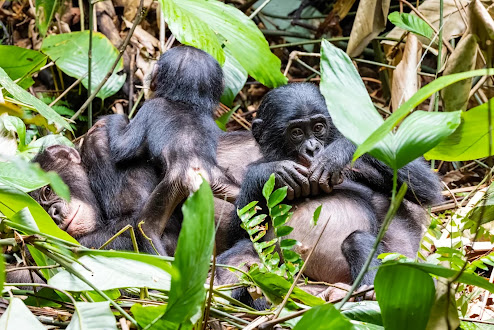 |
| Young bonobos as old as eight years suffer long-lasting stress after the birth of a sibling. Credit: MPI of Animal Behavior/ Christian Ziegler |
In any family, the birth of a child is a transformative event, often greeted with positive feelings from parents—and mixed feelings from siblings. The arrival of a new brother or sister, and the loss of parental attention that comes with it, is stressful for any first-born child. Now, scientists have shown that it is not just humans who have trouble becoming siblings. Bonobos, our closest living relatives, also experience stress in the transition to siblinghood. Following the birth of a sibling, young bonobos had five times higher levels of the stress hormone cortisol and a reduced immune response, which lingered for months. The international team of researchers behind the study were able to show that the stress response was due to the birth of siblings, and not to the natural weaning process that young bonobos inevitably go through. The study on wild bonobos, which is the first to investigate physiological changes in an animal as it transitions to siblinghood, reveals similarities between humans and bonobos—and an evolutionary history behind the stressful event of becoming a sibling.
Bonobos (Pan paniscus) are a species of great ape found only in the Congolese rainforest. Like humans, bonobos and other great apes take an unusually long time to reach independence. Bonobos rely on their mothers for food and protection for eight years and only reach full adulthood at 12 years. While in most animals, offspring are weaned before the mother gives birth to another infant. In bonobos, maturation is slow and the birth of another baby happens long before the older infant has become independent—setting the scene for sibling rivalry.















.jpg)
